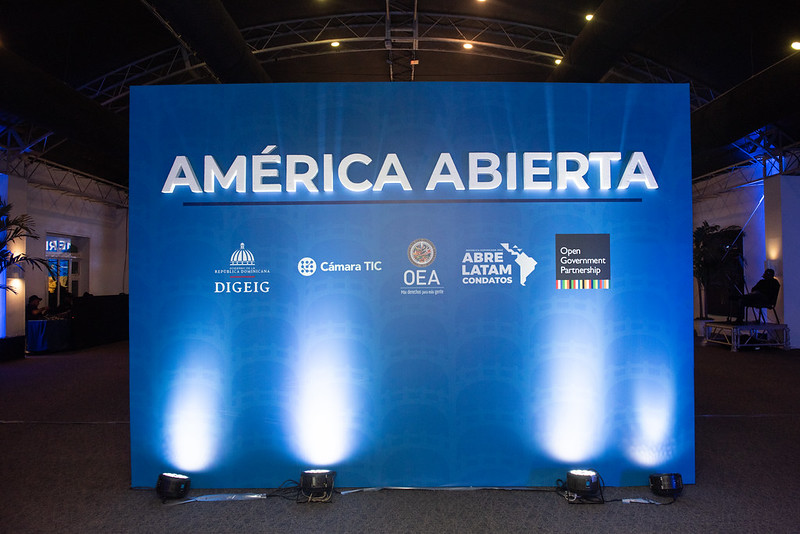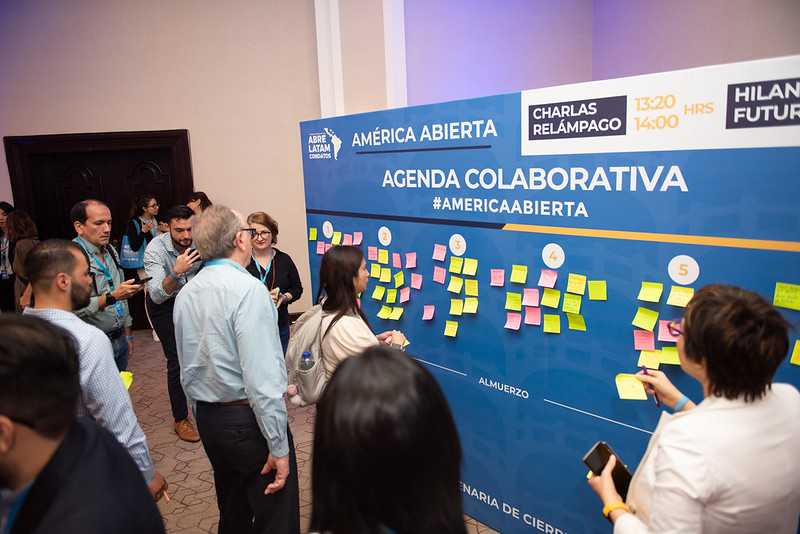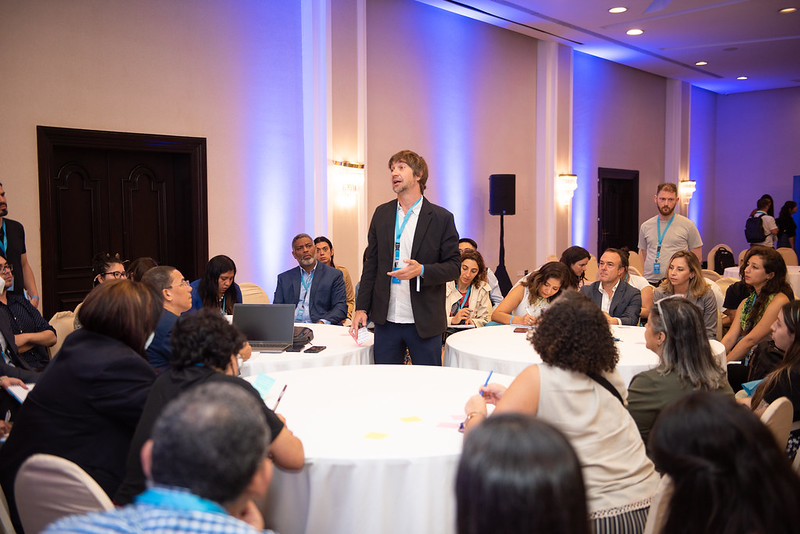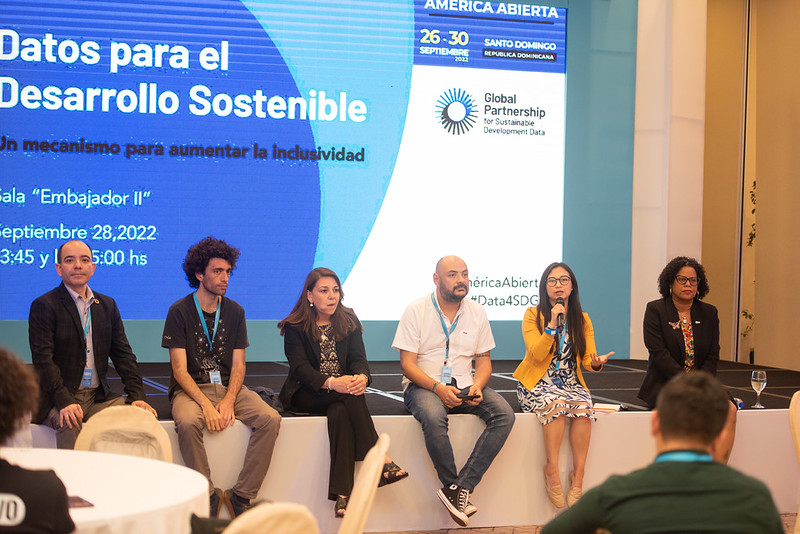News — 07 November, 2022
América Abierta 2022, the challenge of open data

América Abierta, formerly known as AbreLatam/ConDatos, is the regional event on open data and open government, which brings together organizations and individuals working on these issues.

Photo (and the following photos) taken from the album America Abierta (2022) of the Open Government Partnership’s Flickr account, published under a CC Attribution 2.0 Generic (CC BY 2.0) license.
During the last week of September it was held in Santo Domingo, Dominican Republic, the “América Abierta” (Open America) event -formerly known as AbreLatam/ConDatos- a series of activities and conferences on open data and open government, which brings together specialists from throughout the region to talk and create synergies about data, government, civil society and communities.
This event has been taking place since 2013 -the first AbreLatam took place in Montevideo- and since then it has grown in scope and participation. The last two editions were held virtually and this occasion represented the opportunity for the data community of the region to meet again in person and also for new members to join and contribute to the collective catalog of experiences and knowledge.
This gathering of diverse communities will allow us to connect actors to work together for a more open, democratic and sustainable America. Particularly, on transcendental issues such as transparency, integrity, prevention and fight against corruption, protection of rights and freedoms, democratic governance, data and technology for the common good, inclusion of vulnerable groups, citizen participation and collaboration, protection of the environment and development.sustainable. (Source: América Abierta)

Talking about open data may seem like something specialized for the general public, but it is essential for transparency and the fight against corruption, and should be on the agenda of more civil society organizations that can additionally benefit from the use of data that can have an impact on their activities or on their target audiences. It is certainly a field that needs technical knowledge, an active citizen movement and the openness of governments, the latter being something that fluctuates with the political ups and downs of each city or country.
The issues of georeferenced open data in general or open mapping in particular, although they had a certain role in previous editions of the event, on this occasion (see agenda) were mentioned only in passing and with few projects highlighting them. That said, in the conversations that usually take place in the corridors use cases or the need to use them did emerged, which shows that there are actors in the region interested in the subject.
In all this context, one of the important things of the three days of the event was the Open America Declaration, a document with clear ideas about what the open data community wants for the region. As an example I extract some quotes from said document:
We want an Open America so that citizenship is genuinely included, and the exercise of it is free. We want an open justice that, in addition to being efficient and accessible, guarantees the rights of all people.
We want an Open America that makes visible groups that have been structurally excluded from decision-making spaces and whose rights are still systematically violated, such as women, indigenous communities, LGTBQ+ people and Afro communities. Nothing in your name, without it being done together.
We want -almost 10 years after the arrival of the open data agenda- that they be put at the service of the issues that matter, with the quality that is required, as a right of the citizenry and not because of the good will of the power of turn. And we want them about how our money is spent, how our contracts are executed, but also about how our public services work, and how we count those who have been made invisible by state apparatuses that still inherit colonialist practices. (Source: Open America Declaration).

At the closing of the event, two questions were asked to some of the attendees. First, what did they take away from “América Abierta”. My answer would be that the people, knowing so many people who do things in sometimes adverse circumstances serves to inspire oneself and continue working on what one believes in and likes. Second, it was asked what their task was. Well, mine/ours would be to work so that in the next Open America the subject of open mapping is the protagonist, both in shared experiences and in opportunities for collaboration.
As I mentioned in a previous paragraph, although open mapping did not have a prominent place in the event, the interest of organizations and people in using it could be verified. In fact, there are already organizations doing it, such as DataSketch from Colombia or DataLabe from Brazil. Another thing that was seen is that there are common points with several organizations and communities in the region that work directly in our impact areas (to remember: Disasters and climate resilience, Public health, Gender equality, Sustainable cities and communities, Displacement and safe migration).
So -and recapitulating- there is interest in mapping, knowledge of how to map, and experience in addressing common issues spread across various countries in the region, but there is a lack of momentum, spread and support in the creation of synergies. And that is where the Hub should focus, because the regional open data community is like the natural community for mappers and people interested in open mapping. America must be open to open mapping. We still have limits to cross, barriers to break, realities to discover. Let’s open America to open mapping!

By the way, don’t miss the testimonials of Flor Otárola (Cambá), Leo Gómez (TEDIC) and Sebastian Neter (Wingu) about OpenStreetMap.
* This post is an adapted version by the author of what was published in his personal newsletter.

